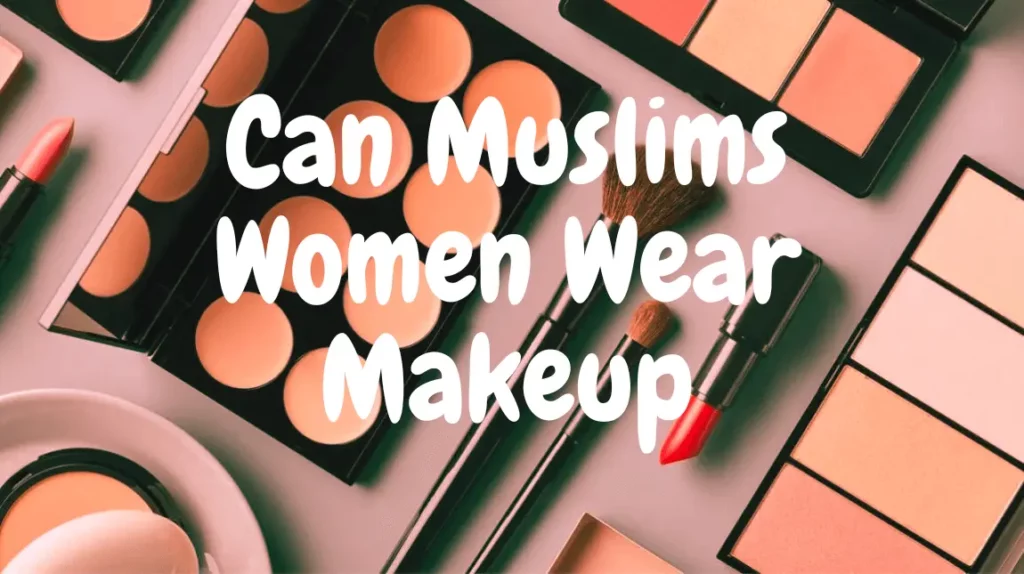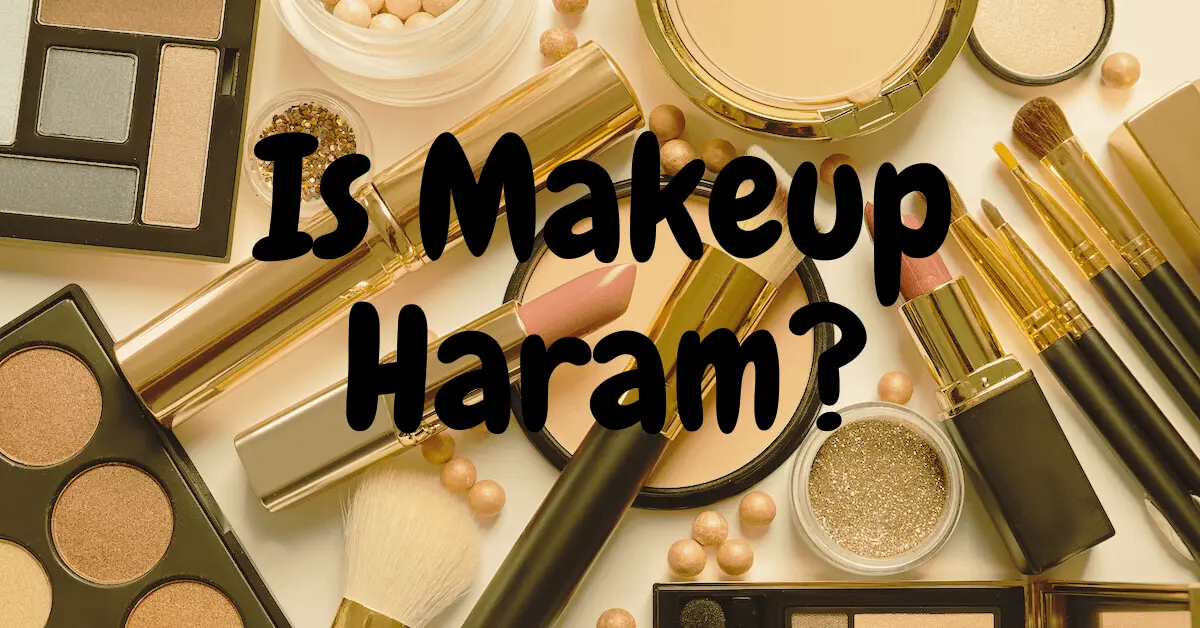Makeup has long been a part of human culture, with its roots dating back thousands of years. Today, it is a multi-billion-dollar industry, with people from all walks of life using cosmetics to enhance their appearance.
However, ongoing debates and discussions within Islamic communities concern whether makeup is haram (forbidden) or halal (permissible) in the eyes of Islam.
In this article, we will delve into the topic and explore the various opinions and arguments surrounding makeup within the context of Islamic jurisprudence.
Understanding Haram in Islam
Before delving into the question of whether makeup is haram or not, it’s essential to understand what haram means in Islamic jurisprudence. In Islam, haram prohibits actions, behaviors, or substances.
These prohibitions are based on the Quran, Hadith (sayings and actions of Prophet Muhammad), and scholarly interpretations. Devout Muslims should avoid actions or substances considered sinful, which are termed haram.
Is Makeup Haram in Islam
No, Makeup is not Haram and it is not shirk. It is absolutely halal for both genders. But remember, Islam forbids harming oneself or one’s skin. It is haram to use a makeup item or technique if it contains ingredients that could damage your skin.
The Diverse Opinions
A Matter of Intent
There are different opinions regarding the use of makeup in Islam. One perspective emphasizes the importance of intention when using makeup.
According to this viewpoint, makeup is not inherently haram, but its permissibility depends on the individual’s intent and the manner in which it is used.
If makeup is applied with the intention of modestly enhancing one’s natural beauty and adhering to Islamic values, it may be considered halal (permissible).
However, some scholars consider excessive or attention-seeking use of makeup as haram. In simple terms, they view using makeup to appear presentable for religious gatherings or modestly in front of family members as permissible, while using it for non-modest purposes is not.
Imitating Non-Muslims
Another perspective expresses concerns that people may use makeup in ways that imitate the practices of non-Muslim cultures. Some argue that excessive or immodest use of cosmetics can lead individuals to adopt styles and trends that are contrary to Islamic principles, potentially diluting their faith.
In this context, makeup can be considered haram when it contributes to a departure from Islamic values, particularly if it promotes extravagance or vanity.
Enhancement vs. Deception
A crucial distinction within Islamic discussions on makeup is whether it serves as enhancement or deception. Many scholars agree that using makeup to enhance one’s natural features subtly is acceptable within Islamic guidelines. However, using makeup to deceive or create a false image is discouraged.
Islam generally discourages deception, and individuals should avoid using makeup to entirely hide their true appearance or mislead others about their features. In essence, the emphasis here is on maintaining honesty and sincerity.
Social and Cultural Factors
Social and cultural factors can also influence the permissibility of makeup in Islam. Scholars may adopt a more lenient view in societies where makeup is considered a cultural norm and an integral part of personal grooming.
They might consider the cultural context and societal expectations when issuing rulings on makeup. This perspective recognizes that makeup practices may vary across regions and communities.
Public vs. Private Settings
Some scholars argue that the permissibility of makeup also depends on the application setting. Generally, people view using makeup for personal enhancement in private settings differently from wearing it excessively in public spaces. Excessive makeup in public settings can draw undue attention and potentially detract from one’s faith.
This viewpoint encourages individuals to exercise discretion and modesty when wearing makeup in public, aligning with the broader Islamic principle of modesty and humility.

Makeup styles
Makeup styles encompass a wide range of diverse and ever-evolving looks. They mirror shifts in fashion, culture, and individual preferences.
The art of makeup empowers individuals to enhance their natural beauty, express their creativity, and boost their confidence. Here are some popular makeup styles and techniques:
1-Natural Makeup (No-Makeup Look):
The natural makeup style aims to enhance one’s features while giving the appearance of no makeup application. It typically involves light foundation or tinted moisturizer, subtle eyeshadow, mascara, and a nude or light lip color. The focus is on achieving a fresh and flawless complexion.
2-Classic Glam:
Bold and timeless looks characterize classic glam makeup. It often includes dramatic winged eyeliner, well-defined brows, false eyelashes, and red or bold-colored lips. This style harks back to Hollywood’s golden era and exudes sophistication.
3-Smokey Eyes:
The smokey eye makeup style is known for its sultry and seductive appearance. It involves blending dark eyeshadows (usually shades of gray, brown, or black) around the eyes to create a smudged, smoky effect. To balance the intensity of the eyes, individuals often pair this style with nude or muted lips.
4-Contouring and Highlighting:
Makeup artists use contouring and highlighting techniques to sculpt and define facial features. Contouring involves using darker shades to create shadows and make certain areas appear slimmer while highlighting uses lighter shades to accentuate and bring forward features like cheekbones and the bridge of the nose.
5-Colorful Makeup:
Colorful makeup styles involve using vibrant and bold eyeshadow, eyeliner, and lip colors to create eye-catching looks. This style is a playground for creativity and can range from subtle pops of color to avant-garde and artistic designs.
These categories do not limit makeup trends, and many individuals blend elements from various styles to create their own unique looks. Makeup is a versatile form of self-expression, and people can adapt their styles to suit different occasions, moods, and personal preferences.
Additionally, makeup trends continue to evolve, influenced by the ever-changing worlds of fashion, beauty, and pop culture.
Conclusion
In the diverse landscape of Islamic thought, there is no one-size-fits-all answer to the question of whether makeup is haram. Ultimately, it depends on an individual’s intent, the way they use makeup and the cultural and social context.
While some scholars may argue that makeup is haram in specific situations, others may permit its use within certain boundaries. In the end, Muslims need to seek guidance from knowledgeable scholars and consider their intentions and circumstances when making decisions about using makeup.
The overarching principle in Islam is to maintain modesty, sincerity, and adherence to the core values of the faith while navigating the world’s diverse customs and practices.
Ultimately, the question of whether makeup is haram or halal in Islam is a matter of interpretation and individual conscience.
FAQS
Muslims generally consider Vaseline, a brand of petroleum jelly, as halal for use since it does not contain any haram (forbidden) ingredients.
Yes, Muslims can use cosmetics, but the permissibility depends on factors like intention and modesty. Using cosmetics to enhance natural beauty while maintaining Islamic values is generally acceptable.
Considering makeup halal (permissible) is possible when it is used modestly and with a sincere intention to enhance natural beauty while adhering to Islamic values. However, some scholars may discourage and consider excessive makeup or deceptive use as haram (forbidden).


